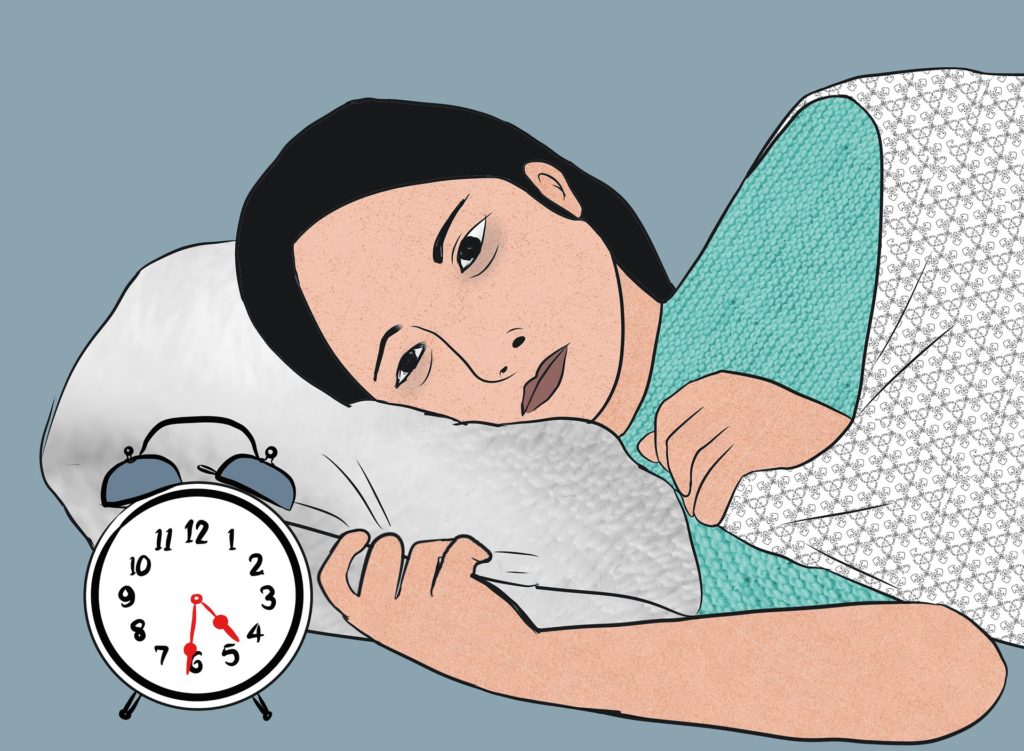
While you sleep comfortably, it removes wastes and byproducts from the body and helps cells to regenerate, creating enough energy for the next day. When we do not get a normal sleep and suffer from sleep disturbance symptoms due to various factors, various abnormal symptoms occur throughout our body. Insomnia is a type of sleep disorder, which refers to having difficulty falling asleep even when given the time and opportunity to sleep. It refers to the complex appearance of several symptoms, such as difficulty in falling asleep over time, difficulty in falling asleep but staying asleep or waking up too early during sleep, and early awakening, a state in which it is difficult to fall asleep once waking up. If these symptoms of insomnia are temporary, caused by environmental changes and jet lag, the symptoms will improve after some time. However, if it progresses to chronicity, it causes fatigue, memory and concentration, etc., and can greatly affect the quality of life due to deterioration of physical condition and reduced motivation. In addition, long-term insomnia symptoms increase the risk of depression, anxiety disorders, high blood pressure, diabetes, cardiovascular disease, and metabolic diseases. Therefore, if the symptoms of insomnia become chronic, it is important to suspect a sleep disorder and receive appropriate treatment through an accurate examination. It is also recommended to continue regular aerobic exercise, which will help stabilize your nerves while improving bad sleep habits. In addition, regular intake of teas that help produce melatonin and serotonin, hormones that help sleep, can be a good way to alleviate insomnia symptoms. So today, let’s take a look at the different types of tea that have a good effect on insomnia.
Good teas for insomnia
1. Lavender Tea
Lavender tea is an excellent first tea to help improve and prevent symptoms of insomnia. Lavender is a representative herb that induces restful sleep. It is known to have a great effect in helping to improve the symptoms of insomnia caused by anxiety, nervousness, and nervousness, and to achieve a good night’s sleep with its excellent sedative effect that harmonizes the nervous system. In addition, consumption of lavender tea suppresses the sympathetic or parasympathetic nervous system, which is said to be effective in relieving excessive mental and physical stress.
2. Chamomile Tea
Chamomile, an Asteraceae plant with an apple scent, is also one of the excellent herbs for calming the nerves. When ingesting chamomile tea, it relieves tension, helps the brain to stabilize, and is effective in helping to stabilize the mind and body. If you drink chamomile tea before going to sleep, it will have a good effect on your sleep by relieving tension and promoting sleep.
3. Jujube tea
Jujube contains a large amount of ingredients that stabilize the nerves and has an excellent effect in helping the activation of melatonin, which induces sleep. Due to these related actions, boiling jujube and drinking it as a tea is said to have a good effect in relieving symptoms of nervous insomnia or insomnia caused by stress. In addition, jujubes are rich in vitamin C, which has an excellent effect on enhancing the body’s immunity through metabolism-stimulating action.
4. Rooibos Tea
Rooibos tea is a tea made by fermenting the leaves of rooibos, a coniferous tree that grows in the high mountains of South Africa. It is said to be effective in relieving stress and insomnia as it helps to stabilize the mind and body by the complex action of various components such as magnesium, manganese, zinc, and calcium, which are abundantly contained, and helps to activate melatonin, a hormone that helps sleep. In addition, rooibos is rich in antioxidants such as vitamin C, vitamin E, and SOD, which are known to help improve skin beauty and immunity by neutralizing high concentrations of free radicals.
5. Chrysanthemum Tea
Chrysanthemum tea, which refers to tea made from dried chrysanthemum petals, is one of the best teas for insomnia. It is said to be beneficial in relieving symptoms of insomnia by relieving tension, helping to relieve headaches and stress. In addition, if you drink chrysanthemum tea regularly, it is known to have good effects on eye health, such as preventing eye redness and fading of vision. . However, it is recommended to consume in an appropriate amount as it may cause side effects such as abdominal pain or diarrhea when consumed in excess by those with a cold constitution.
6. Schisandra tea
Omija got its name because it has five flavors: sour, sweet, salty, spicy, and bitter. Schisandrine, which is abundantly contained in Schisandra, is excellent in lowering stress levels and helping to relieve anxiety. If you drink Schisandra tea regularly, it will be beneficial in preventing insomnia and helping you get a good night’s sleep. In particular, the rich sijandrine component of Schisandra tea is known to protect the bronchial mucosa and strengthen the lung function to prevent various respiratory-related diseases such as bronchitis, rhinitis, and asthma.











